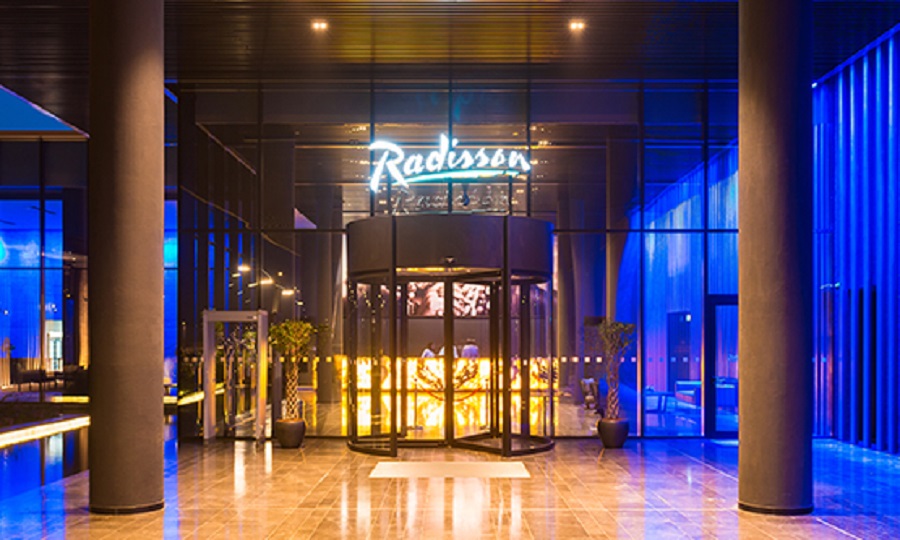RIO DE JANEIRO, BRAZIL – With 8 hotel brands and over 1,500 units in operation or under development in 120 countries, the company is in talks with local entrepreneurs to introduce its brand under the franchise system in several cities in Argentina.
It is looking to expand from 65 to 250 hotels in Latin America in the coming years.

“We are missing Argentina, a very important tourist and business destination. The chain is looking to grow in the region and Argentina is one of my priorities; it is a top destination in South America. I am in talks with a number of Argentine groups that I have known for years, when I worked for other chains, interested in the Radisson brand. But I was waiting for borders to reopen so that I could travel to the country and meet with them, to see which brand best suits their hotels. I now hope to do so in November or, at the latest, in early December. Because business in Latin America is done face to face, through the bond of trust,” explained Radisson Hotel Group Americas general manager for Latin America and the Caribbean Paul Adan.
The executive joined the company in June, after several years at the Marriott and, before that, at the Hilton and NH Hotels, among other chains.
“Radisson only franchises hotels to their owners and they are managed by groups of local operators,” he said.
Like other chains, such as the Marriott, Accor, Hilton and Wyndham, the Radisson is currently targeting the conversion of existing hotels to one of its brands as a means to expand.
“The first waves of hotel investments will consist of converting independent hotels to one of the chain’s brands, or from one brand to another. There are also many hotel conversions for other uses (such as co-living spaces or senior housing), which is not bad for the sector, because it addresses the oversupply in several markets. New construction takes longer,” he explained.
“We have initial talks to establish our brands in Buenos Aires, Córdoba, Mendoza and Iguazú. But we are also interested in reaching cities such as Rosario and other secondary locations,” he said.
Adan said that the chain had a signed project in Córdoba, but that the developer was looking for capital to complete it. It is the Capitalinas mixed-use development of premium office towers -now completed- and a conference center and hotel, under the Radisson brand, still under construction. The agreement was signed in 2007 and the hotel tower was to be built in a second stage, which was subsequently delayed.
According to the executive, more Radisson Blue (upper upscale) or Radisson (upscale) hotels may operate in Buenos Aires, but also Radisson Collection (luxury).
“And in all cities, Buenos Aires and especially in Cordoba, Mendoza and Rosario, we see great potential for Radisson Red (between upscale and mid-scale), a more lifestyle brand, with plenty of design and smaller rooms, but with large public areas for social activities. The construction cost per room is lower, due to its size, but with an attractive lobby and bar, used not only by guests, but also as a meeting place for locals. It is a young concept, albeit not for millennials,” he explained. In pre-pandemic times, the brand was charging rates between US$120 and US$130.
It is often said that a crisis represents an opportunity. And this year, in addition to Radisson, chains such as the Marriott, Accor, Hilton and Wyndham are advancing with their expansion plans in Argentina and Latin America.
“Times of crisis are times of great opportunity. Independent hotels suffered the most with the pandemic and are looking for help from an international brand to access their loyalty program and reservation system. But they don’t want a huge compliance book or to spend millions of dollars to convert. They can be offered an option at a very reasonable cost. Chain hotels have greater sales strength and guest recognition and sell at higher rates in many markets. This was happening before the pandemic and now it has accelerated,” Adan said.
“We see a great opportunity, because Radisson brands have very flexible criteria that can be adapted. It often does not require a large investment, but more than anything else the upgrading of decoration and furnishings, good Internet signal and good quality breakfasts and comfortable beds, with modern and clean rooms, which is what guests demand today,” he said.
“We have to assess each hotel individually to determine which brand fits best, according to the destination and the building. We see what suits them, without large investments, which allows them to improve rates and demand, with a more immediate return. The better it works, the better for everyone, because we charge fees based on performance,” he said.
The executive said that certain markets are rebounding faster than others, based on improved revenues and deferred travel desires after a year and a half of pandemic.
“When the borders reopen in Argentina there will be ‘revenge tourism’. People didn’t travel because they couldn’t due to the pandemic, they saved up and want to travel as soon as they can. Argentina has always been a top destination in South America. In the medium and long term, tourism will have more than recovered. I would like to think that in 2023 we will be close to 2019 levels. Some Caribbean destinations are now exceeding that year,” he pointed out.

